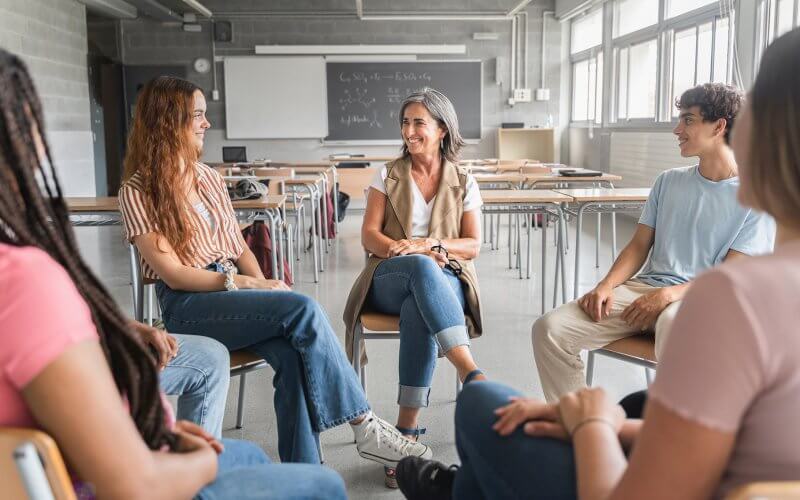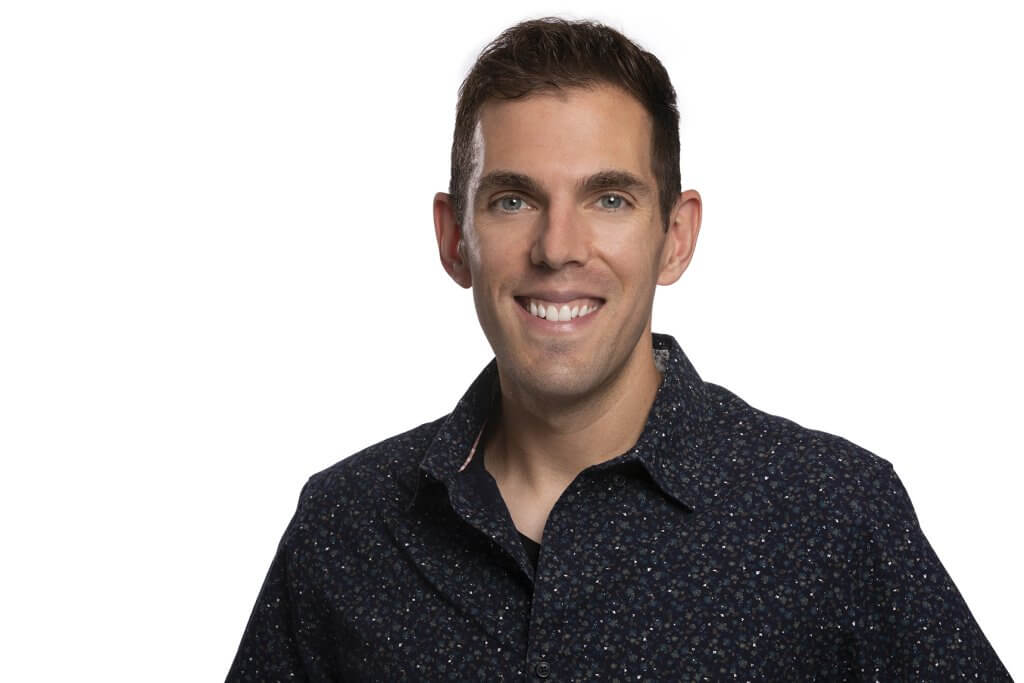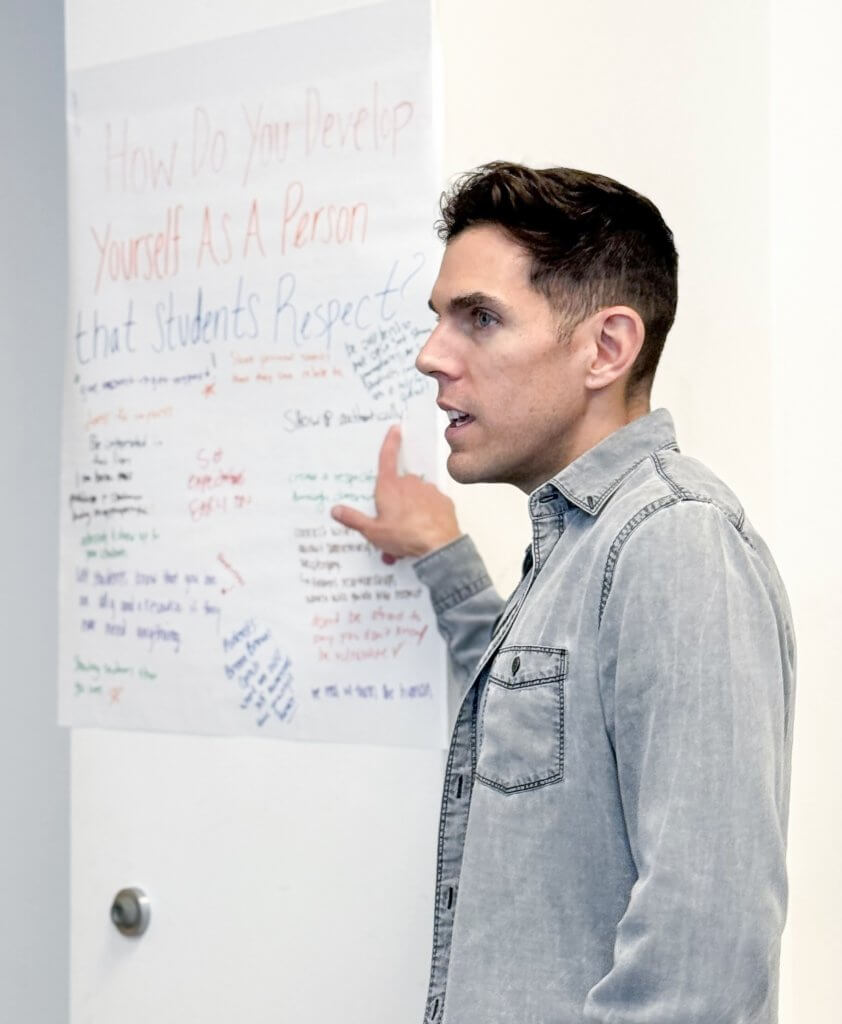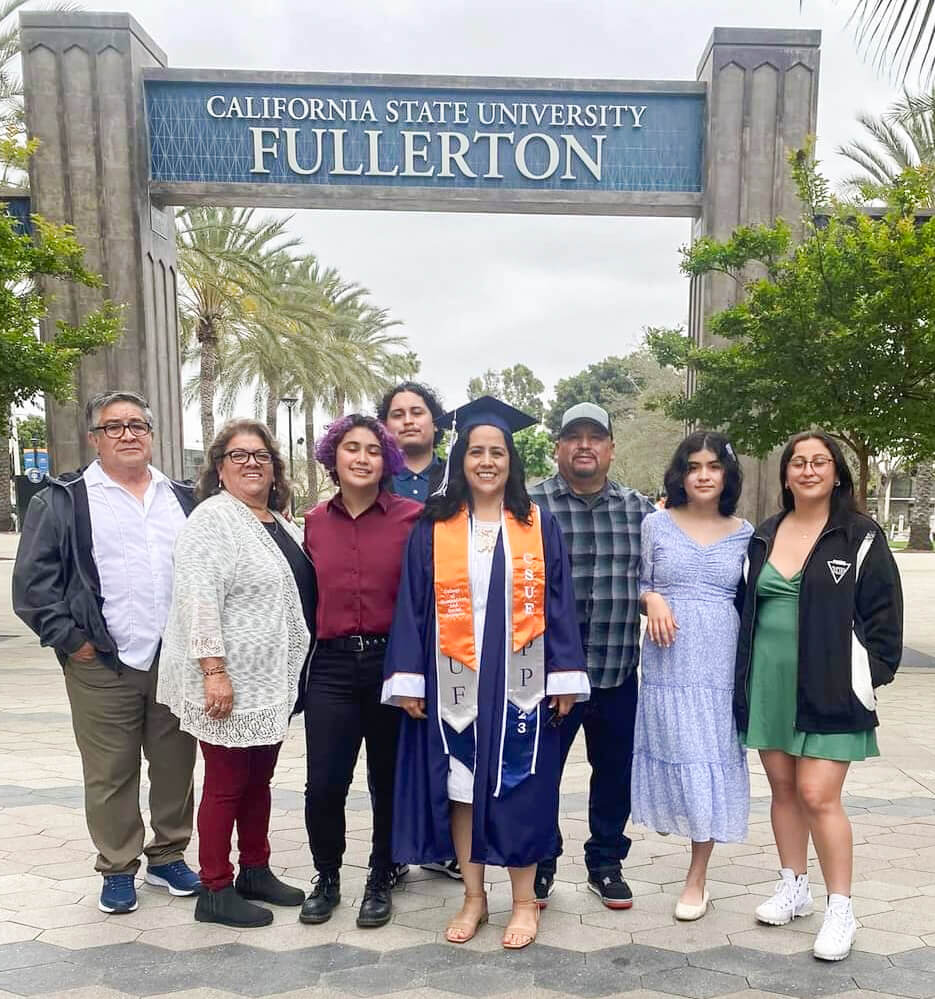
Cal State Fullerton educator William Toledo is teaching future teachers how to engage in civic thinking and controversial political conversations with middle and high school students they teach.
Toledo, assistant professor of secondary education, teaches credential students to build their own civic dispositions and teaching skill sets to foster civic discourse, including contentious presidential elections.
“Our democracy is hanging in the balance, and for our democracy to continue and thrive, we as citizens and teacher educators must make sure that our future teachers can engage students in authentic, productive and meaningful civic discourse in classrooms,” Toledo said.

“Our country is at a point where we are divided, and young students are exposed to misinformation and disinformation perpetuated on social media,” said Toledo, adding research shows that individual civic identities and dispositions develop during adolescence.
Toledo said civic discourse is a way to discuss relevant public issues with peers or community members with differing opinions or beliefs. Presidential elections, particularly the 2024 presidential race, leave much on the line for vulnerable communities and the communities credential candidates will teach.
“As educators, we must equip secondary school students with the tools to have informed and productive civic discourse, or we will see more political candidates preying on individuals’ lack of civic knowledge and spin hateful rhetoric and disinformation to achieve political goals.”
Toledo’s civics education research focuses on credential students analyzing their biases, discussing public topics in civil and respectful ways and applying specific strategies and techniques to bridge divides.

Through courses such as General Pedagogy in Secondary Schools, credential students learn about student engagement and teacher professionalism, as well as how to facilitate classroom discourse in productive ways, regardless of the content area they teach.
“Once credential students learn a framework for discussion, such as taking a stance on a topic, we move on to larger and more controversial issues, such as voting rights, immigration and civil rights,” he said.
Toledo added that teaching middle and high school students to identify biases, agendas and inaccuracies in media or political discourse fosters critical thinking and empowers them to participate in civic life more responsibly.
“It is essential to equip young students with civic thinking skills and frameworks so that as they exit high school, their voices can be heard in ways that are effective to creating change in our system.”
Teacher candidate and alum Ivette Maya, who has taken courses with Toledo, shared that she has learned how her civic values and beliefs impact her teaching career.

“The courses that focus on civic thinking are preparing me to become a teacher who creates an inclusive classroom, welcomes our differences and breaks down old ideas and prejudices to create a more just society,” said Maya, who plans to teach middle or high school history.
Maya, a student in the single subject credential program in social sciences and history, agreed that teachers must help their students make sense of current events like presidential races.
“By giving our students the tools to analyze, question and challenge the information they read, see, or hear, they will be more capable of making decisions based on facts rather than emotions or misinformation,” said Maya, a student teacher in history and geography at Walker Junior High School in La Palma.
“This preparation benefits them not only in the classroom but also in their roles as voters, community members and contributors to society.”
Maya returned to college to study history after raising four children — three are in college — and is the first in her family to earn a bachelor’s degree from CSUF in 2023.
“I chose CSUF’s credential program because it aligns with my values that teachers can help make social change by dismantling oppressive systems and helping students become more empathetic and multiculturally aware citizens,” she said.